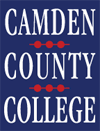
Open Educational Resources (OER)
|
If your CCC Library Card Barcode is not working, please complete the application. |
Quick Links
Semester Hours
| Monday to Thursday |
8:30am - 8:30pm |
| Friday | 8:30am - 4:30 pm |
| Saturday | 10:00am - 4:00pm |
| Sunday | CLOSED |
For holiday and break hours (including summer schedule), click here
|
What is OER? Open Educational Resources (OER) are teaching, learning and research materials in any medium – digital or otherwise – that reside in the public domain or have been released under an open license that permits no-cost access, use, adaptation and redistribution by others with no or limited restrictions. UNESCO Most open licensed materials use a Creative Commons license. For more information about Creative Commons licensing select the Copyright and Creative Commons tab. |
|
The 5 R's of OER Open Educational Resources or OER allows adopters of OER materials to "Revise, Remix, Reuse, Re-distribute, and Retain" educational materials. These are known as the "5 R's of OER."
|
|
What is Free and What is Open? "Open educational resources, or OER, are materials that are made available to educators for free through open licenses that allow users to share, adapt, and reuse the resources. While open licenses may come with certain conditions (most, for example, require that you give attribution for any materials you use), they allow for the adaptation, remixing, and redistribution of original content without seeking the author’s permission. There are many free educational materials available from for-profit companies or nonprofit organizations that have an 'all rights reserved' copyright, which is the default unless otherwise indicated. There is nothing wrong with using traditionally copyrighted materials, but there are restrictions on how you can use them, usually that you cannot alter or redistribute the original material." Fasimpaur, K. (2012, October). 4 Steps to Getting Started with OER. T H E Journal, 39(8), 37-40. |